"[M]ost Hindus themselves felt little need for precise self-descriptions, except when faced with blunt questions about religion on official forms. Long after their encounter with the monotheistic religions of Islam and Christianity, they continued to define themselves through their overlapping allegiances to family, caste, linguistic group, region, and devotional sect. Religion to them was more unselfconscious practice than rigid belief; it is partly why Indian theology accommodates atheism and agnosticism.
Their rituals and deities varied greatly, defined often by caste and geography; and they were also flexible: new goddesses continue to enrich the pantheon even today. There is an AIDS goddess which apparently both causes and eradicates the disease. At any given time, both snakes and the ultimate reality of the universe were worshipped in the same region, sometimes by the same person. Religion very rarely demanded, as it did with many Muslims or Christians, adherence to a set of theological ideas prescribed by a single prophet, book, or ecclesiastical authority." [Pankaj Mishra]
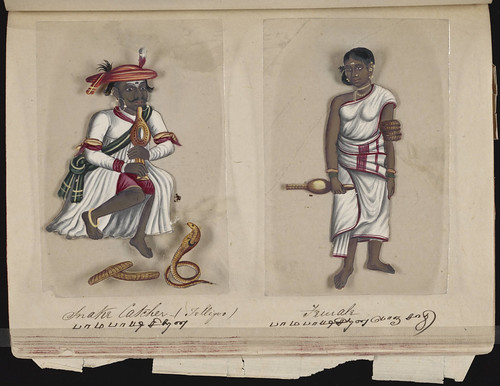
"Snake catcher (Telligoo) / Female"
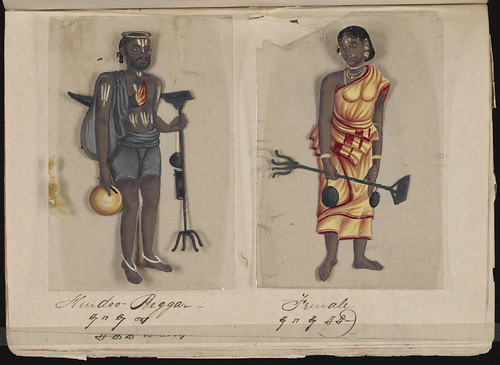
"Hindoo beggar / Female"
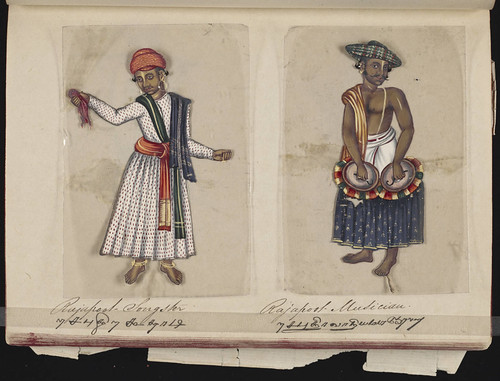
"Rajapoot songster / Rajapoot musician"
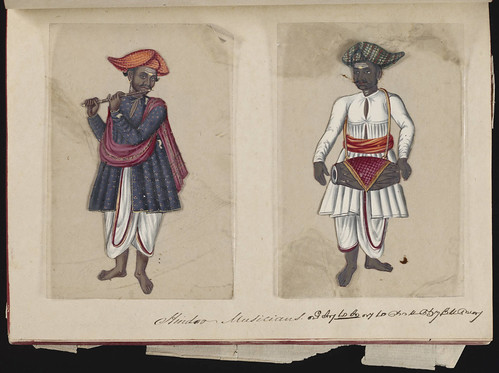
"Hindoo musicians"
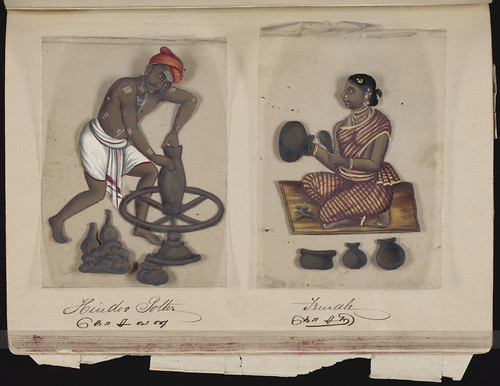
"Hindoo potter / Female"
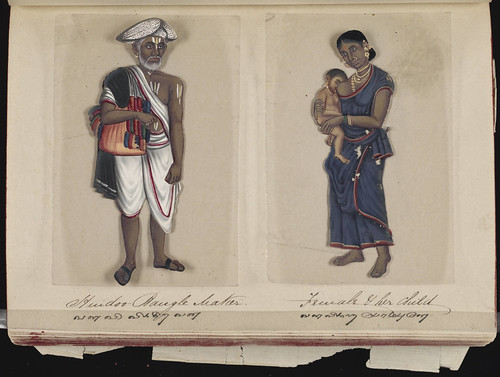
"Hindoo bangle maker - Female & her child"
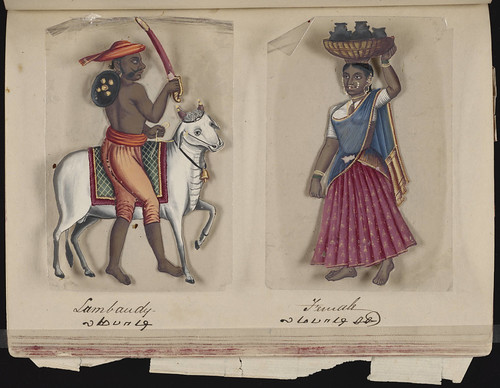
"Lumbandy (?) / Female"
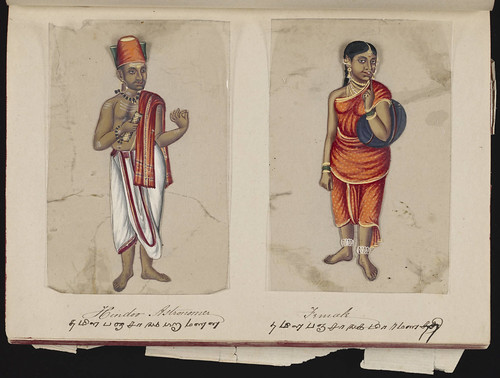
"Hindoo astronomer / Female"
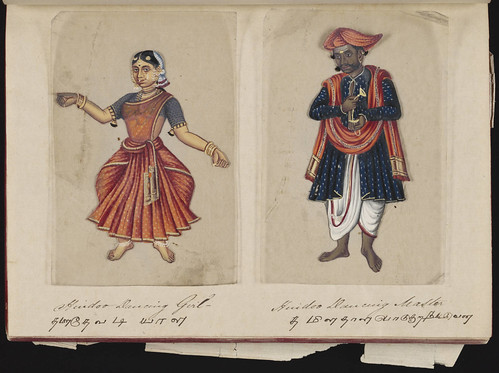
"Hindoo dancing girl / Hindoo dancing master"

"Hindoo fencer / Female"

"Hindoo saddler / Female"
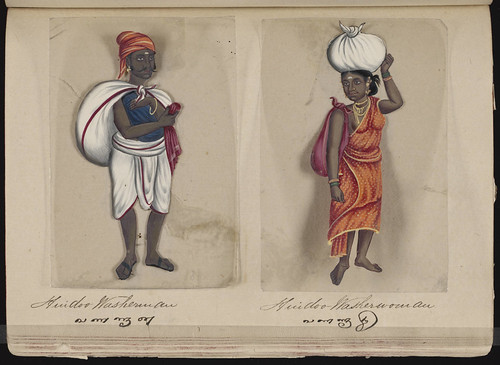
"Hindoo washerman / Hindoo washerwoman"
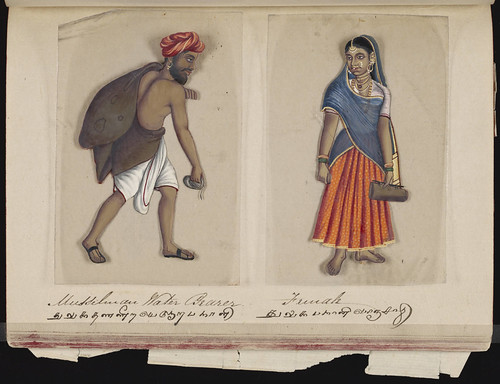
"Mussilman water bearer / Female"
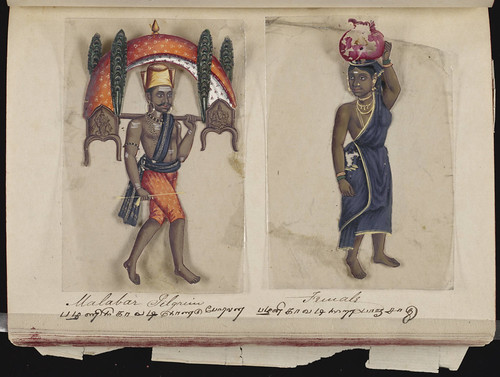
"Malabar pilgrim / Female"

"Sholeah brahminy / Female"
'Seventy two specimens of castes in India ... : presented to the Revd. William Twining as a token of obligation by his ... friend Daniel Poor' [1837] is online among the General Collection, Beinecke Rare Book and Manuscript Library, Yale University.
"This illustrated manuscript made in southern India in 1837 consists of 72 full-color hand-painted images of men and women of the various castes and religious and ethnic groups found in Madura, India at that time. Each drawing was made on mica, a transparent, flaky mineral which splits into thin, transparent sheets. As indicated on the presentation page, the album was compiled by the Indian writing master at an English school established by American missionaries in Madura, and given to the Reverend William Twining."
- The quote at the beginning of this entry comes from a fascinating article - 'The Invention of the Hindu' © Pankaj Mishra, 2004, that was posted to a great thread on Metafilter a few years ago by Dinesh. I don't *think* I've linked this up before (?) Oh well.
- Although the Wikipedia article itself is somewhat contentious, there are a number of worthwhile links relating to the caste system here.
No comments:
Post a Comment